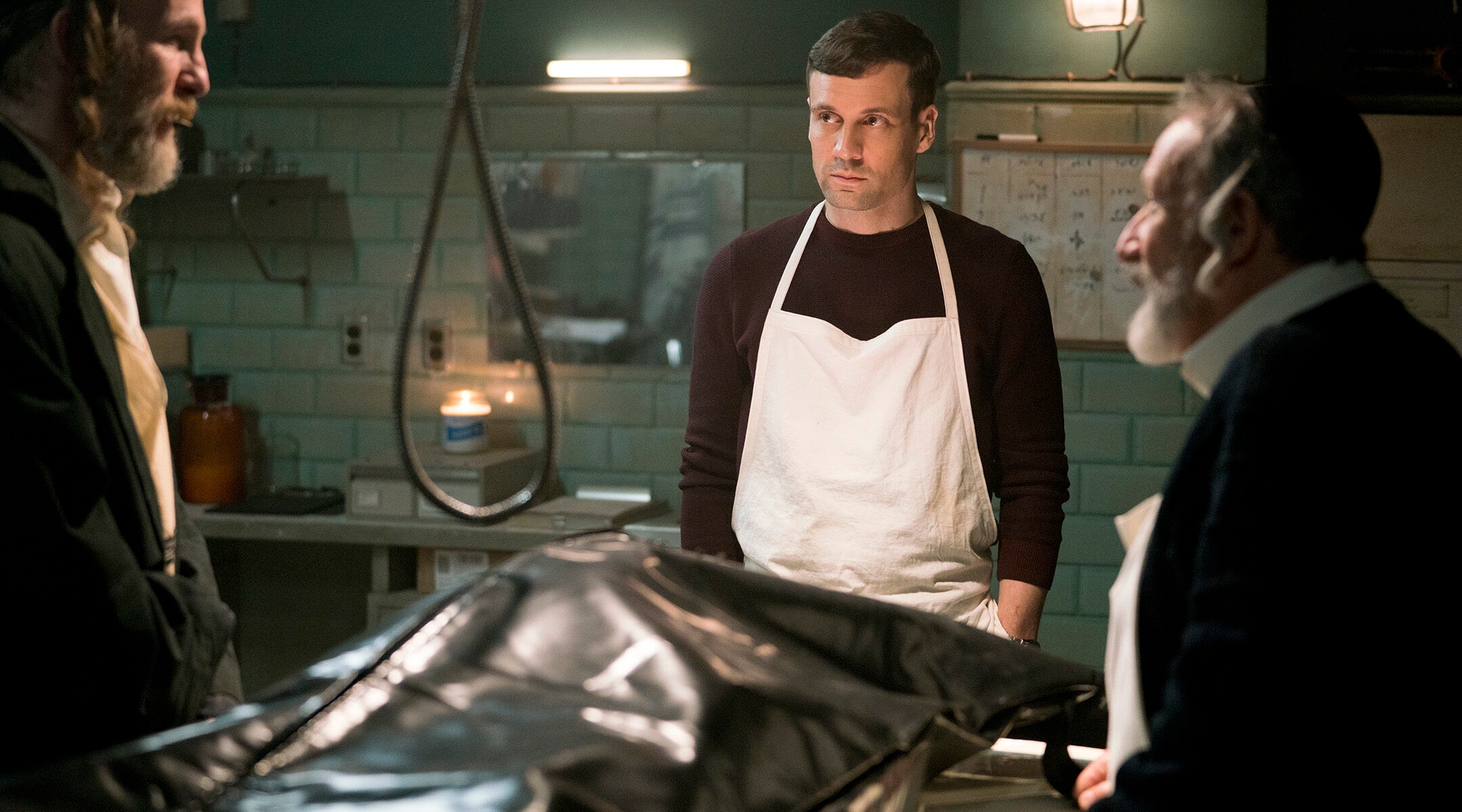(JTA) — British filmmaker Oliver Park isn’t Jewish, but he does have a deep appreciation for the Jewish roots of the horror genre that informed his work on “The Offering,” his feature debut as director about an ancient demon set in a Hasidic enclave in Brooklyn.
“Jewish horror stories have been around for thousands of years,” Park told the Jewish Telegraphic Agency. “All of these fantastic and rich stories come from this Jewish space.”
The first horror movie franchise, he points out, centered on the Jewish Golem monster and was produced in the 1910s, years before “Nosferatu,” the well-known silent vampire film from 1922.
The legend of the Golem, said to have originated in 16th-century Prague, has been credited with inspiring “Frankenstein.”
“Having been a lifelong fan, obsessed horror nut that I am, I’ve always wanted to get into the Jewish space,” Park said.
The demon in “The Offering” is known as Abyzou. “She is this very, very old ancient demon. For all we know, she could be Lilith herself,” Park said, referring to a spirit of darkness and sexuality found in biblical and Talmudic texts.
In the film, which hits theaters and on-demand platforms on Friday (the 13th), a young man (Nick Blood) brings his pregnant, non-Jewish fiancé (Emily Weisman) to meet his long-estranged father (Allan Corduner), a Hasidic man who works at a funeral home and morgue in Brooklyn. Long-buried tensions are revealed and revisited, and there are several lines of Yiddish dialogue.
The screenwriter and producer, Hank Hoffman, is the son of a rabbi and has a background in Kabbalah, the Jewish mystical tradition. The main producer, Jonathan “Yoni” Yunger, comes from a Jewish background as well. Hoffman worked in a morgue for a time in his youth.
“Both of them immediately, their brains just exploded with ideas,” Park said. The film was in the making for about six years. He called it “a passion project, and very much their baby.”
“The Offering” was shot in early 2021, with Bulgaria standing in for Brooklyn, and the production was able to continue during a particularly nasty stage of the pandemic. Park called the script “so rich with characters, and so rich with horror, and mythology and rituals, and the occult and esotericism, and all within this beautiful Jewish community.”
Theres has been a boom in the Jewish-themed horror realm in recent years. “The Vigil,” from 2020, took as its subject matter shemira, or the Jewish ritual of watching over a dead body. “The Unborn” was a dybbuk-themed horror movie that came out in 2009 — featuring Gary Oldman as a rabbi — and in 2021, a movie called “Dybbuk” was made in India, in Hindi. That was itself a remake of a 2017 film called “Ezra,” which was made in Malayalam, an Indian language, and involved an Indian Jewish protagonist.
“I’m so excited that in the last 30 or so years, they’ve slowly trickled back through and we’re seeing more and more of them now,” Park said of Jewish-themed horror movies. “So I’m really hoping that there are many more terrifying and disturbing tales that are inspired richly in Jewish folklore.”
Lead actor Nick Blood may have a perfect name for horror — “I think I’m destined to play Dracula one day,” he said — but he described himself as not particularly an enthusiast of the genre. However, he told JTA that the director and writers’ “passion for it convinced me straight away” to star in the film.
Blood said he had some Zoom sessions with a Yiddish teacher in New York, who helped him get words and pronunciations right. Some of the spells and incantations used in the film were in Aramaic, a language with which Hoffman, the screenwriter, is familiar.
“The Offering,” which premiered at festivals last year, comes from Millennium Films, founded by the Israeli-American producer Avi Lerner. Corduner, who plays the father, was raised Jewish, as was actor Paul Kaye (who played Thoros of Myr on “Game of Thrones”), actor Daniel Ben-Zenou and several background actors in the film.
Park and Blood both said that the Coen brothers’ “A Serious Man” was frequently cited in the production of “The Offering,” and not only because of a scene in which a Kabbalah passage appears inside a dead body — much like the Hebrew passage engraved on a dental patient’s teeth in the Coens’ very Jewish movie. In the opening scene of “A Serious Man,” a possible dybbuk appears in a 19th-century shtetl.
“There was an enormous amount of inspiration taken from that film,” Park said.
JTA has documented Jewish history in real-time for over a century. Keep our journalism strong by joining us in supporting independent, award-winning reporting.






